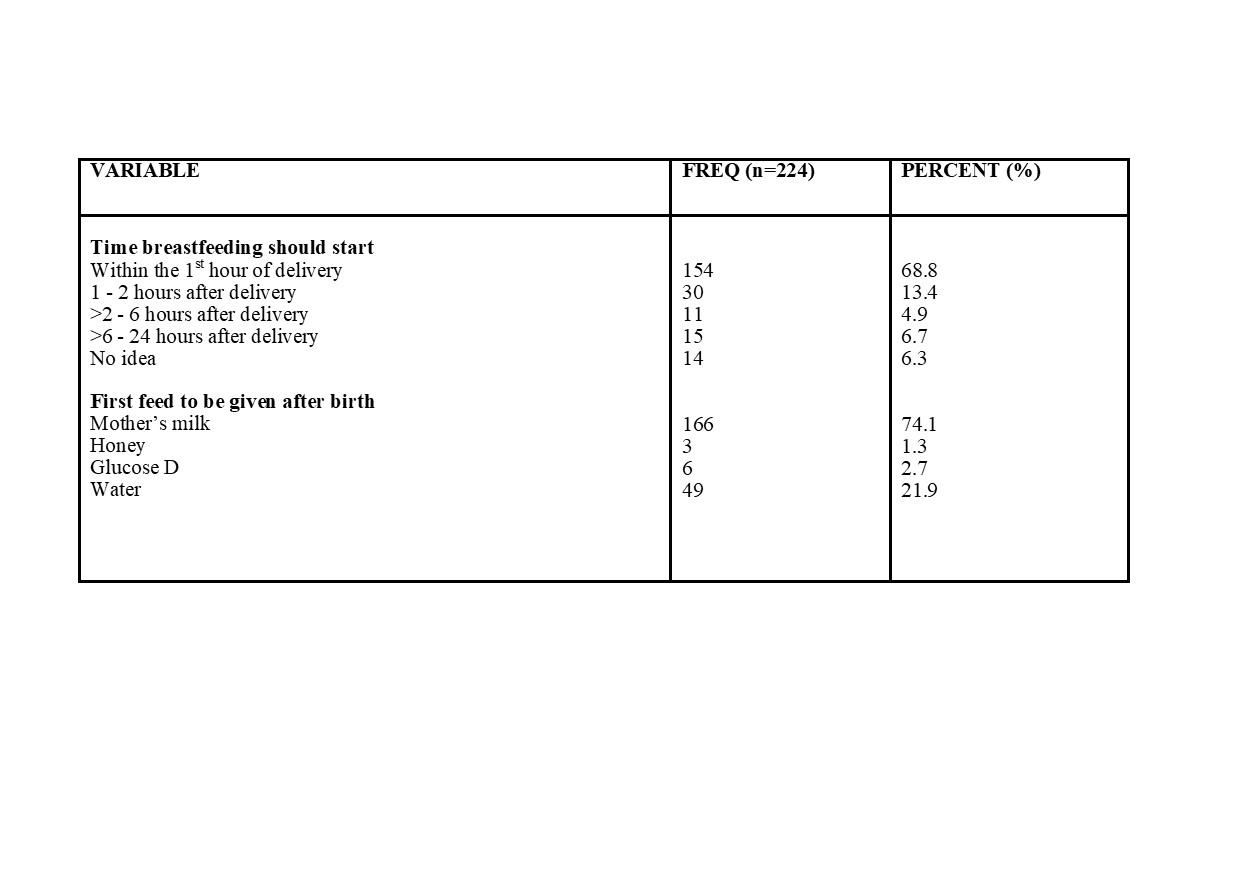KNOWLEDGE, ATTITUDE AND PRACTICE OF EXCLUSIVE BREASTFEEDING AMONG MARKET WOMEN IN OYINGBO MARKET, LAGOS, NIGERIA
Knowledge attitude practice of exclusive breastfeeding
Abstract
Background: Exclusive breastfeeding for the first six months of an infant’s life is a cost-effective intervention in saving children’s lives. Despite its numerous benefits, its practice is still sub-optimal globally. In Nigeria, 28.7% of infants below six months were exclusively breastfed in 2018, which is below the global exclusive breastfeeding target. This study was conducted to assess the knowledge, attitude and practice of exclusive breastfeeding among market women in Oyingbo market, Lagos.
Methods: This was a cross-sectional descriptive study involving women traders at Oyingbo Market. Consecutive sampling technique was employed; an interviewer-administered structured questionnaire was used to collect data, and data was analysed using Epi-Info Version 7.
Results: Majority of the respondents were married (97.3%), between 21 and 40 years of age (93.3%), had secondary education (61.6%), were Muslims (65.2%), Yoruba (79.9%), and had between 1 - 2 children (51.3%). The majority (96%) were aware of exclusive breastfeeding, with health care workers being cited most as a source of information (92.1%). About half of the respondents (51.5%) knew the correct definition and duration of exclusive breastfeeding, and four-fifths knew that exclusive breastfeeding is sufficient for the first six months of baby’s life. All the respondents (100%) breastfed their babies at some point, and almost two-thirds (63.8%) reported initiating breastfeeding within an hour after they delivered. However, only 37.5% of respondents practiced exclusive breastfeeding for six months. Nearly 90% of respondents (89.3%) breastfed their child for between 1 -2 years.
Conclusion: Although the knowledge of exclusive breastfeeding is high among this group of respondents, their practice of exclusive breastfeeding is sub-optimal. Health education and peer education of the benefits of exclusive breastfeeding, and other group-based interventions would be beneficial in improving exclusive breastfeeding rates; an enabling environment for breastfeeding within the markets is also an important area for consideration.





